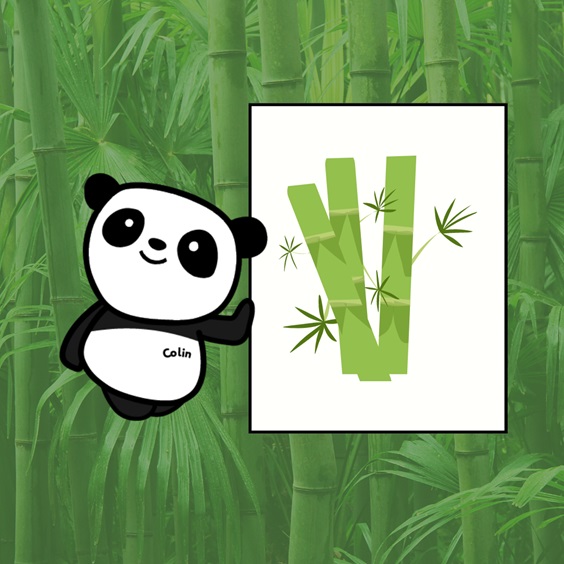
| Why is bamboo so good for the environment? Bamboo absorbs large amounts of carbon dioxide, grows without the need for chemicals, and helps prevent soil erosion. Its rapid growth cycle means it can be harvested frequently, helping reducing deforestation without damaging the environment, making it a sustainability super-plant! Is bamboo good for people with allergies or sensitive skin? Bamboo fibres are naturally hypoallergenic and have antimicrobial properties, making them ideal for people with sensitive skin or allergies. I read bamboo is a really invasive plant? Like many other plants, bamboo shouldn’t be planted where it’s not native. That’s why the bamboo grown for the Cheeky Panda is sourced from an FSC Certified Bamboo forest in China where it grows naturally and support the local habitats and eco-systems where the flora and fauna flourish in the surroundings of the bamboo shoots. That way, we get the environmental benefits of bamboo, without taking away or affecting ecosystems in other regions, and there’s no need to clear-cut any land either. Is bamboo toilet paper better than recycled? You probably know where we stand on this (bamboo all the way!). There’s a few reasons for this. Firstly, while recycled tissue might sound eco-friendly, the truth is it’s not always what it seems. Sometimes, less than half of it is actually post-consumer recycled. The rest? Freshly cut trees. Not exactly planet-friendly. An other issue with recycled TP is BPAS, which are forever chemicals that have been shown to mess with fertility, hike up blood pressure, and more. Finally, cleaning up recycled paper to turn it into toilet roll involves a chemical cocktail that might end up in our waterways – not so great for nature and our aquatic pals. How is bamboo toilet paper made? Our journey begins in the lush bamboo forests where this incredible plant thrives. Did you know that Bamboo is one of the fastest-growing plants on Earth? This humble grass is capable of growing up to 91 cm (about 3 feet) in a single day. Unlike trees that take decades to mature, bamboo reaches maturity in just 3-5 years. This speedy growth cycle means bamboo takes the gold in the renewable resource race, one of the reasons we choose it for our home essentials. Plus, the bamboo we choose comes from FSC certified bamboo forests, so we can be sure that all our bamboo is sustainably harvested, and farmers are treated ethically. When it comes time for our bamboo to get a haircut, we take great care to protect the forest’s biodiversity. Each bamboo pole is harvested one at a time, rather than clear-cutting large areas, which happens in virgin tree forests. This selective harvesting method ensures that the bamboo forest remains healthy and continues to support the diverse range of flora and fauna that call it home. By avoiding clear-cutting, we help preserve the forest ecosystem, ensuring it can regenerate naturally and continue to thrive. No Bald patches for our forests. Once harvested, the bamboo poles are taken to a processing facility where they are chipped into smaller pieces. This is the first step in transforming raw bamboo into ready-to-use pulp. The chipping process helps break down the bamboo into a form that can be more easily processed in the pulp mill, where the magic of turning bamboo into paper begins. We use sea freight for all shipments from China to the UK because it has the lowest carbon footprint, thanks to large cargo capacity, slow steaming, cleaner fuels, and emission controls. In contrast, recycled tissue, despite being converted in the UK, often travels around the world as there isn’t enough recycled pulp available locally. UK converters frequently source recycled materials internationally before final converting and packaging. For example, recycled pulp might come from the USA, be pulped in China, and then shipped to UK converters for final processing. Our supply chain is straightforward and efficient, saving airmiles and going directly from forest to you. We also ensure that our products and processes comply with environmental regulations and standards. This includes monitoring our use of chemicals, managing waste responsibly, and ensuring that our packaging is recyclable. Our converting factory uses renewable solar energy, with at least 95% of processing water recycled and reused. Environmental education is prioritised, and we’re proud to boast that our factory multiple environmental awards. |


